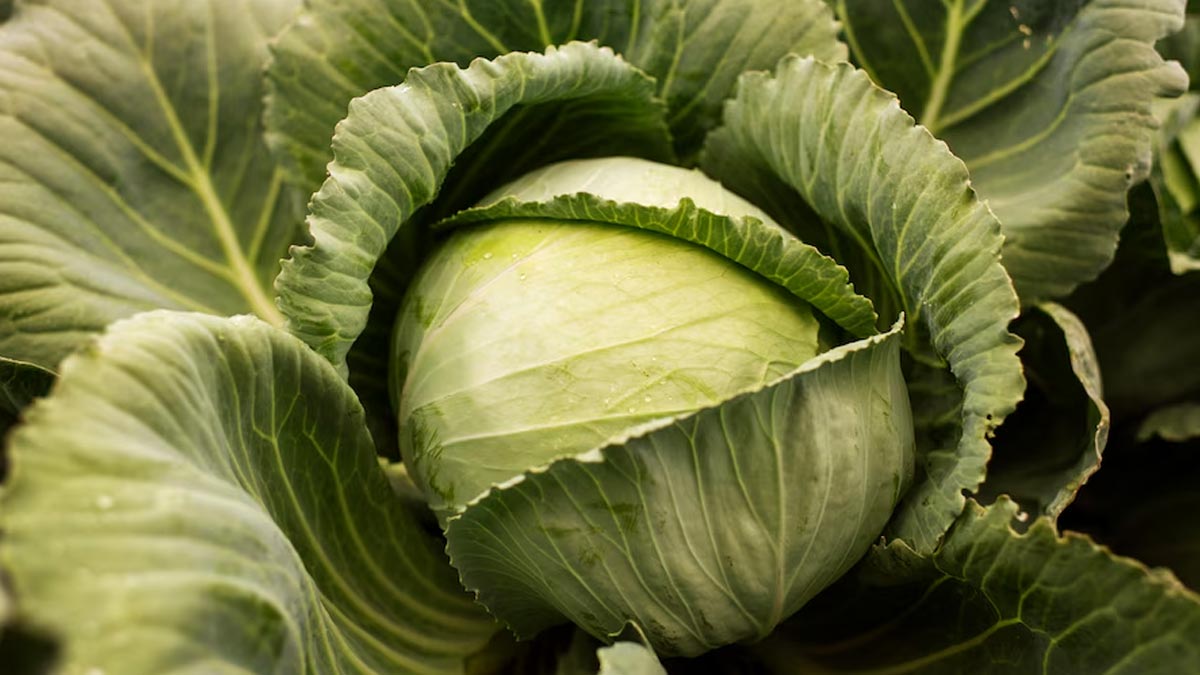
Cabbage is not just a versatile vegetable that adds flavour and crunch to your meals; it's also packed with nutrients that can be particularly beneficial in reducing inflammation. This cruciferous vegetable is rich in vitamins, minerals, and antioxidants that play a crucial role in combating inflammation and promoting overall health.
Table of Content:-
“Fresh raw and organic cabbage juice, high in glutamate, can assist to improve gut health and treat inflammation,” said Dr Ericberg, author, health coach and an instagram influencer. He recommends one glass of cabbage juice per day.
View this post on Instagram
1. Rich in Antioxidants
According to Frontiers in Pharmacology, cabbage is known to have inflammatory effects. Cabbage is high in antioxidants like vitamin C, anthocyanins, and sulforaphane, which assist to minimise oxidative stress in the body. Oxidative stress is a condition marked by an imbalance of free radicals and antioxidants in your body, which causes cell damage and inflammation. Cabbage's antioxidants can help reduce inflammation by neutralising free radicals.
Also read: Eat Cabbage To Make Your Face Crystal Clear With A Radiant Glow
2. High in Fibre
The high fibre content in cabbage is beneficial for gut health. A healthy gut flora is essential for reducing inflammation, as a significant portion of the immune system is located in the gut. Fibre promotes the growth of beneficial gut bacteria, which can help regulate inflammation and improve the immune response.
In fact, one 2014 study of young adults published in the Journal of Nutrition found that consuming more cruciferous veggies helped lessen certain blood markers of inflammation.
3. Source of Sulforaphane
According to the National Library of Medicine, cabbage, especially the purple variety, contains sulforaphane, a compound known for its anti-inflammatory properties. Sulforaphane inhibits the activation of inflammatory pathways in the body, thus reducing inflammation. It's particularly effective in combating inflammation-related conditions like arthritis, cardiovascular diseases, and various forms of cancer.
4. Vitamin K Content
Cabbage is a good source of vitamin K, which plays a pivotal role in regulating the inflammatory response in the body. Vitamin K is involved in the synthesis of proteins that control inflammation, helping to prevent excessive inflammatory reactions.

5. Detoxification Support
The nutrients in cabbage support the body's detoxification processes, helping to eliminate toxins that can contribute to inflammation. Glucosinolates, compounds found in cabbage, are particularly effective in stimulating detoxifying enzymes in the liver, which assists in reducing inflammation.
How You Can Incorporate Cabbage into Your Diet
To harness the anti-inflammatory benefits of cabbage, you can incorporate it into your diet in various ways:
- You can make raw organic cabbage juice.
- Raw: Add shredded cabbage to salads or coleslaws to enjoy its crunchy texture and nutrient content.
- Cooked: Include cabbage in soups, stews, or stir-fries. Cooking cabbage can make it easier to digest for some people.
- Fermented: Sauerkraut, fermented cabbage, is rich in probiotics, which are beneficial for gut health and can further reduce inflammation.
Also read: Red Cabbage Nutrition Facts: 4 Important Health Benefits Of Eating Blaukraut
Precautions
While cabbage is generally safe and healthy for most people, those on blood thinners should be cautious due to its vitamin K content, which can affect blood clotting. Additionally, some individuals may experience gas or bloating from eating cabbage, particularly in its raw form.
Cabbage offers multiple anti-inflammatory benefits due to its rich content of antioxidants, fibre, sulforaphane, and vitamins. Regularly incorporating cabbage into your diet can be a natural and effective way to combat inflammation and promote overall health.
Also watch this video
How we keep this article up to date:
We work with experts and keep a close eye on the latest in health and wellness. Whenever there is a new research or helpful information, we update our articles with accurate and useful advice.
Current Version